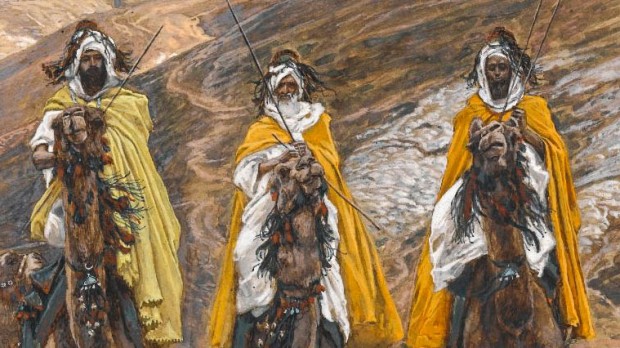The Magi from the East
In the Gospels of Matthew and Luke, we read unique stories about different people’s reaction to the announcement of the coming of Emmanuel. Over the next several weeks, we will examine and reflect on each of their experiences as recorded in Scripture, and how they prepared for the coming of Jesus.

One of the stories that always fascinates readers of the Christmas story is the coming of the magi from the East to give gifts to the one who is meant to rule over Israel and shepherd the people. These magi are given little description of their own selves in the biblical text, and yet they play a fascinating role in the narrative not only of the birth of Jesus, but also in the political atmosphere surrounding the birth of this child. In Western Christian tradition, we often count the number as three (because of the number of gifts that are brought), and identify them as Melchior, Caspar, and Balthazar (or other variations of these names). However, the biblical text does not identify the number of wise men who come, nor their royal status. Other traditions number this group differently, even up to a dozen or more who have come to pay homage to Jesus. No matter the details of who and how many, the story remains significant because of the identification of Jesus by this group, and the subsequent events that are enacted by King Herod.
The scene opens in Matthew 2 as the wise men are in search of the child who has been born king of the Jews. The purpose of the story is clear. Matthew has spent time in chapter 1 tracing the lineage of Jesus back to King David and to Abraham, Isaac, and Jacob themselves. Now, foreigners are traveling to give honor to this child who is to be king. The problem with this is that there is already a king in Israel! The king does not want to hear that a successor has been born that will displace him and his potential successors. That story likely ends with his and his children’s deaths. And so King Herod enacts a plan to get rid of this rival for the throne before the child can grow up to get rid of him.
However, God intervenes to rescue Jesus by sending his family to Egypt so that he won’t be killed. But we are getting ahead of ourselves. Because the Magi do more than just search for this child. They give honor to him. They bring gifts to give to him. They even announce the fulfillment of a Jewish prophetic text–and they are foreigners, likely coming from a completely different religious background with different understandings of who God (or the gods) is/are and what should be done because of it!
This is truly amazing! The birth of Jesus is not just a pivotal moment in the political landscape of Judea. It is a pivotal moment in all corners of the earth. The true King and Shepherd has been born! His reign will extend outside the boundaries of a single nation. His influence will be over more than just one group of people. Jesus is to be the greatest of all rulers. And the Magi come announcing this child has been born. They come to give gifts, and to share in the joy that this news brings.
So, what does the response of the Magi teach or instruct us?
First, the Magi’s response teaches us that the birth of Jesus is for all peoples. And the story of God is for all peoples. I am amazed that this group of travelers from the East understand the words of the prophet Micah and quote them to King Herod. The story of God is for this group of people just as much as it is for the Jewish people. The Magi are not characters who are simply thrown into the mix for the fun of it. They are instructive concerning God’s purposes for the larger world.
Second, the Magi’s response reminds us that the story of Jesus is met with vastly different responses. Some respond with great joy (the Magi), while others respond in fear. The story of Jesus is good news, but it is also news that asks us to turn control over our lives and over the world to God. We cannot keep both hands on the metaphorical steering wheels of our lives and confirm that Jesus is Lord and King. We must decide how we will respond.
And lastly, for today at least, the Magi remind us that the response to Jesus should be one of worship and extravagance. These wise men give gifts to Jesus and his family that are treasures. They bestow extravagance upon Jesus because the response to the birth of Jesus is worship.
Today, I pray that we may respond in kind as this group of travelers responded to Jesus. May we seek to bring the good news to all people, respond with joy, and prepare ourselves to worship freely this Jesus.

